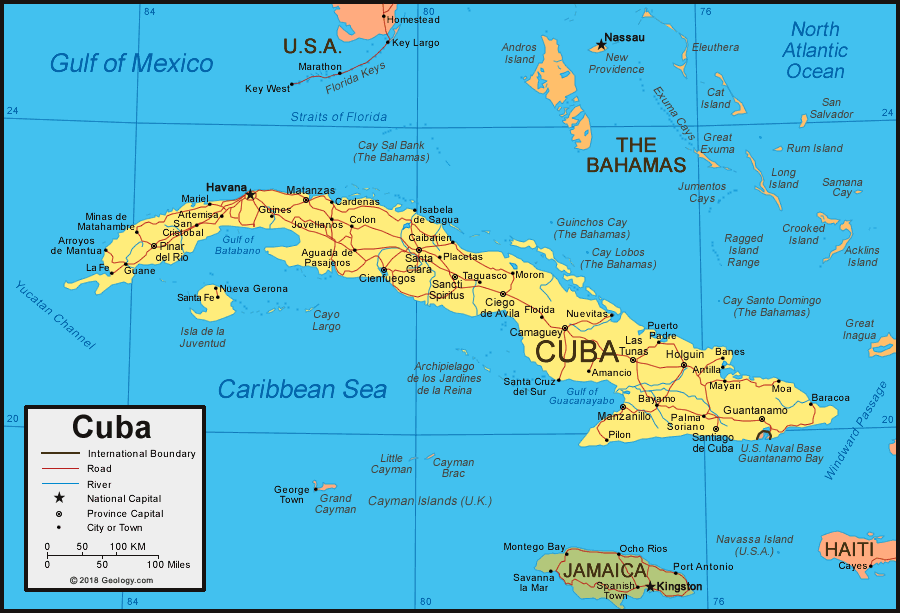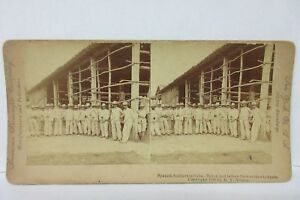SPAIN JOURNEY TO THE PAST: ON JANUARY 1, 1899, THE DAY CUBA CEASED OF BEING SPANISH
On January 1, 1899, at twelve o’clock in the morning, General Castellanos, on behalf of the Government of Spain, officially handed over the island of Cuba to the authorities of the United States in compliance with the Treaty of Paris. The ceremony took place at the Palace of the Captaincy General, in Havana. Cuba was no longer Spanish.
The repatriation of the troops had begun several months before, after the defeat of the Cervera squad and the capitulation to the Americans, and would continue until well into that same year, 1899. Cádiz, during those months, received several ships loaded with soldiers weekly. , mostly with tropical diseases, public employees, and families who had not wanted to stay in Cuba.
THE LAST PESETAS THAT CAME OUT OF CUBA.
At the same time that the Spanish flag from Cuba was being lowered, the Buenos Aires steamship, of the Trasatlántica Company, was finishing the tasks to leave Havana and set sail for Cádiz. A total of 2,609 passengers and a battalion from the León Regiment had embarked on the steamer. A few moments before setting sail from Havana, a man from Cádiz got on board and asked to speak to the ship’s purser, José Cuenca, also a native of Cádiz and an old friend of his.
This man from Cádiz handed over to Cuenca a thousand pesetas bill, an important amount in those years, placed in the center of an artistic hand-painted card with a Spanish flag in the center and the legend “Sad memory. January 1, 1899 ”.
On the cardboard and under the bill, the man from Cádiz had written: “At twelve hours less a few minutes of this sad day, when the glorious Spanish flag of the Morro de La Habana fortress is about to be lowered, as a sign of cessation of the sovereignty of Spain, a son of Cádiz makes solemn delivery of the banknote of the Bank of Spain number 81,838, the value of one thousand pesetas, to his friend Don José Cuenca, flight attendant Buenos Aires, shortly before setting sail for the Motherland.
The donor considers the most appropriate to alleviate the penalties of the brave repatriated patients who fought to preserve for Spain this that was a piece of their territory, and to this object he directs his donation to the president of the Casino Gaditano, begging him to, through a raffle, auction or whatever Another effective means that suggests your zeal, try to obtain the highest value of the banknote and be able to contribute to the funds necessary to fulfill the patriotic mission that the Casino has imposed on behalf of the returnees who are victims of heroism and self-denial for the Homeland ”.
The departure of the Buenos Aires steamer from Havana was surrounded by great agitation on the dock. As was the case with other ships full of returnees, some Cubans made obscene gestures and insulted the Spanish soldiers huddled on the deck. But many other Cubans, nobly, came to dismiss the returnees with Spanish flags. Specifically, in the case of Buenos Aires, hundreds of Cubans gathered at the old Fish Market in Havana waving Spanish flags and cheering the soldiers.
DESTINATION OF THE LAST SPANISH DONATION
On January 16, Buenos Aires arrived in Cádiz. The purser José Cuenca immediately went to the residence of the president of the Casino, Rafael de la Viesca, to deliver the ticket. The Casino Gaditano, faithful to its tradition started on the occasion of the wars in Africa, had a subscription open to cover the hospital expenses of numerous soldiers repatriated from Cuba and Puerto Rico.
Rafael de la Viesca decided to hold a raffle to get a better return on the ticket, managing to sell a total of 1,041 five-pesetas ballots, and obtaining a total of 5,205 pesetas.
For the raffle, the Casino Gaditano organized a popular festival, on February 11, which was attended by the music bands of the regiments of the square, Álava and Pavía. A young woman took out the winning number, the winner being the operator of the Transatlantic Company Heraclio Yuste Diosdado, who with extreme generosity wanted to donate the ticket again to the open subscription. The public and the directors of the Casino opposed this.
Since the donor of the ticket from Cádiz remained anonymous, the Casino Gaditano sent a letter of thanks to the steamboat Buenos Aires, so that he could send it to his friend in Havana.
ESPAÑA, UN VIAJE AL PASADO: EL 1 DE ENERO DE 1899, EL DIA QUE CUBA DEJÓ DE SER ESPAÑOLA
El 1 de enero de 1899, a las doce en punto de la mañana, el general Castellanos, en nombre del Gobierno de España, hizo entrega oficial de la isla de Cuba a las autoridades de los Estados Unidos en cumplimiento del Tratado de París. La ceremonia tuvo lugar en el Palacio de la Capitanía General, en La Habana. Cuba dejaba de ser española.
La repatriación de las tropas había comenzado varios meses antes, tras la derrota de la escuadra de Cervera y la capitulación ante los norteamericanos, y continuaría hasta bien entrado ese mismo año de 1899. Cádiz, durante esos meses, recibía semanalmente varios buques cargados de soldados, en su mayor parte con enfermedades tropicales, empleados públicos y familias que no habían querido permanecer en Cuba.
LAS ULTIMAS PESETAS QUE SALIERON DE CUBA.
A la misma hora en que se procedía a arriar la bandera española de Cuba, el vapor Buenos Aires, de la Compañía Trasatlántica, ultimaba las faenas para abandonar La Habana y poner rumbo a Cádiz. En el vapor habían embarcado un total de 2. 609 pasajeros y un batallón del Regimiento de León. Pocos momentos antes de zarpar de La Habana subió a bordo un gaditano que pidió hablar con el sobrecargo del buque, José Cuenca, también natural de Cádiz y antiguo amigo suyo.
Este gaditano hizo entrega a Cuenca de un billete de mil pesetas, importante cantidad en aquellos años, colocado en el centro de una artística cartulina pintada a mano con una bandera de España en el centro y la leyenda “Triste recuerdo. 1 de enero de 1899”.
En la cartulina y debajo del billete el gaditano había escrito: “A las doce horas menos algunos minutos de este triste día, cuando está a punto de ser arriado el glorioso pabellón español de la fortaleza del Morro de La Habana, en señal de cese de la soberanía de España, un hijo de Cádiz hace solemne entrega del billete del Banco de España número 81.838, valor de mil pesetas, a su amigo don José Cuenca, sobrecargo del vapor Buenos Aires, poco antes de zarpar para la Madre Patria.
El donante considera lo más apropiado aliviar las penas de los valientes enfermos repatriados que lucharon por conservar para España este que fue pedazo de su territorio, y a ese objeto dirige su donativo al presidente del Casino Gaditano rogándole que, por medio de rifa, subasta o cualquier otro medio eficaz que le sugiera su celo, procure obtener del billete mayor valor y poder contribuir a los fondos necesarios para cumplir la patriótica misión que se ha impuesto el Casino en favor de los repatriados víctimas de herosismo y abnegación por la Patria”.
La salida del vapor Buenos Aires de la Habana estuvo rodeada de gran agitación en el muelle. Como también ocurría con otros barcos repletos de repatriados, algunos cubanos hacían gestos obscenos e insultaban a los soldados españoles apiñados en la cubierta. Pero otros muchos cubanos, noblemente, acudieron a despedir a los repatriados con banderas de España. Concretamente en el caso del Buenos Aires, cientos de cubanos se dieron cita en la vieja Pescadería de la Habana agitando banderas españolas y dando vítores a los soldados.
DESTINO DE LA ÚLTIMA DONACIÓN ESPAÑOLA
El 16 de enero llegó el Buenos Aires a Cádiz. El sobrecargo José Cuenca se trasladó de inmediato al domicilio del presidente del Casino, Rafael de la Viesca, para hacer entrega del billete. El Casino Gaditano, fiel a su tradición iniciada con motivo de las guerras de África, tenía abierta una suscripción para atender los gastos de hospital de numerosos soldados repatriados de Cuba y Puerto Rico.
Rafael de la Viesca decidió realizar una rifa para sacar mayor rendimiento al billete, logrando vender un total de 1.041 papeletas de cinco pesetas, y obteniendo un total de 5.205 pesetas.
Para el sorteo, el Casino Gaditano organizó una verbena popular, el 11 de febrero, a la que acudieron las bandas de música de los regimientos de la plaza, Álava y Pavía. Una joven sacó el número premiado, resultando ganador el operario de la Compañía Trasatlántica Heraclio Yuste Diosdado, que con extrema generosidad quiso donar de nuevo el billete a la suscripción abierta. El público y los directivos del Casino se opusieron a ello.
Dado que el gaditano donante del billete permanecía en el anonimato, el Casino Gaditano envió una carta de agradecimiento al sobrecargo del vapor Buenos Aires, para que la hiciera llegar a su amigo de la Habana.
Agencies/ Diario de Cadiz/ José M. Otero/ Internet Photos/ Arnoldo Varona/ www.TheCubanHistory.com
THE CUBAN HISTORY, HOLLYWOOD.











